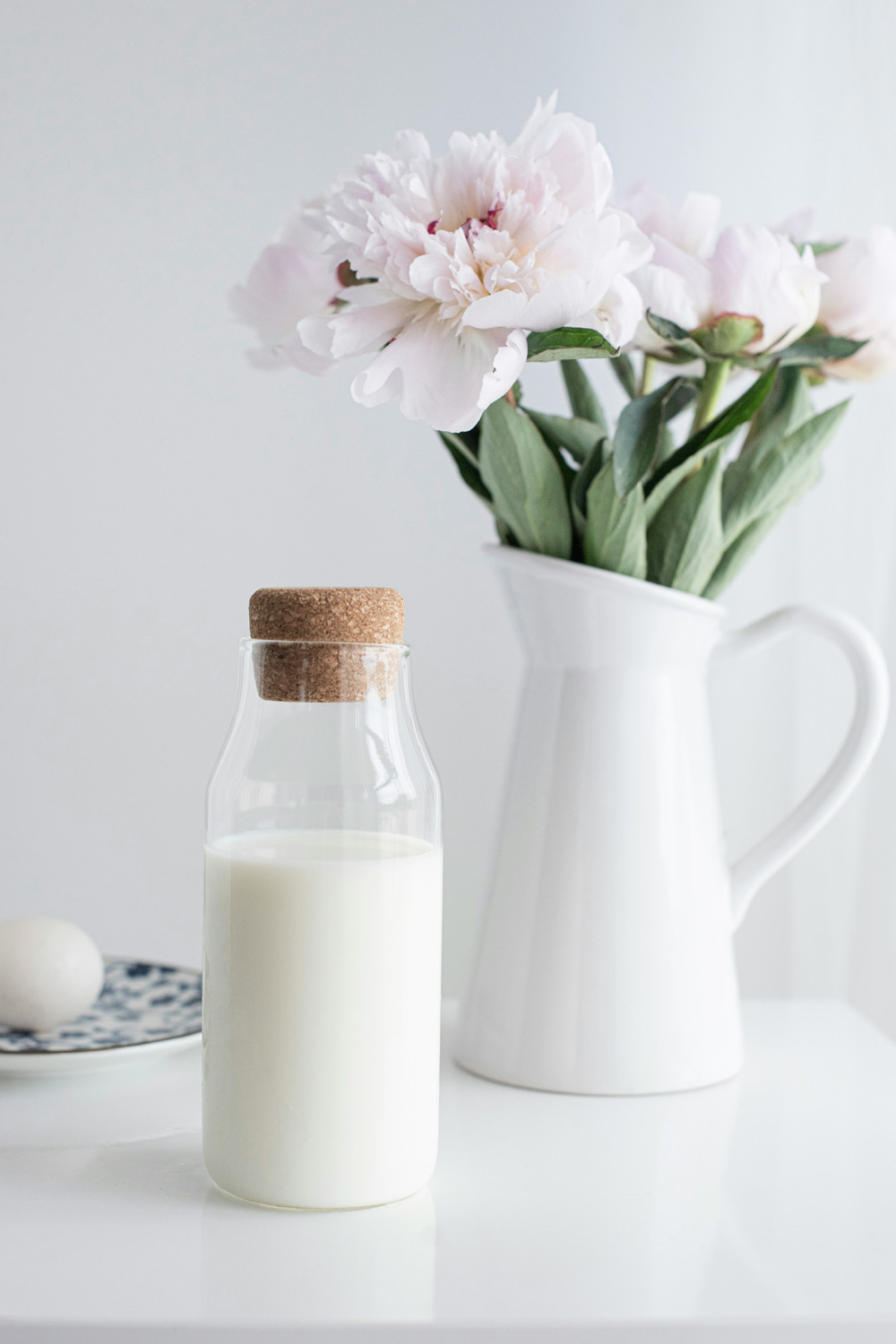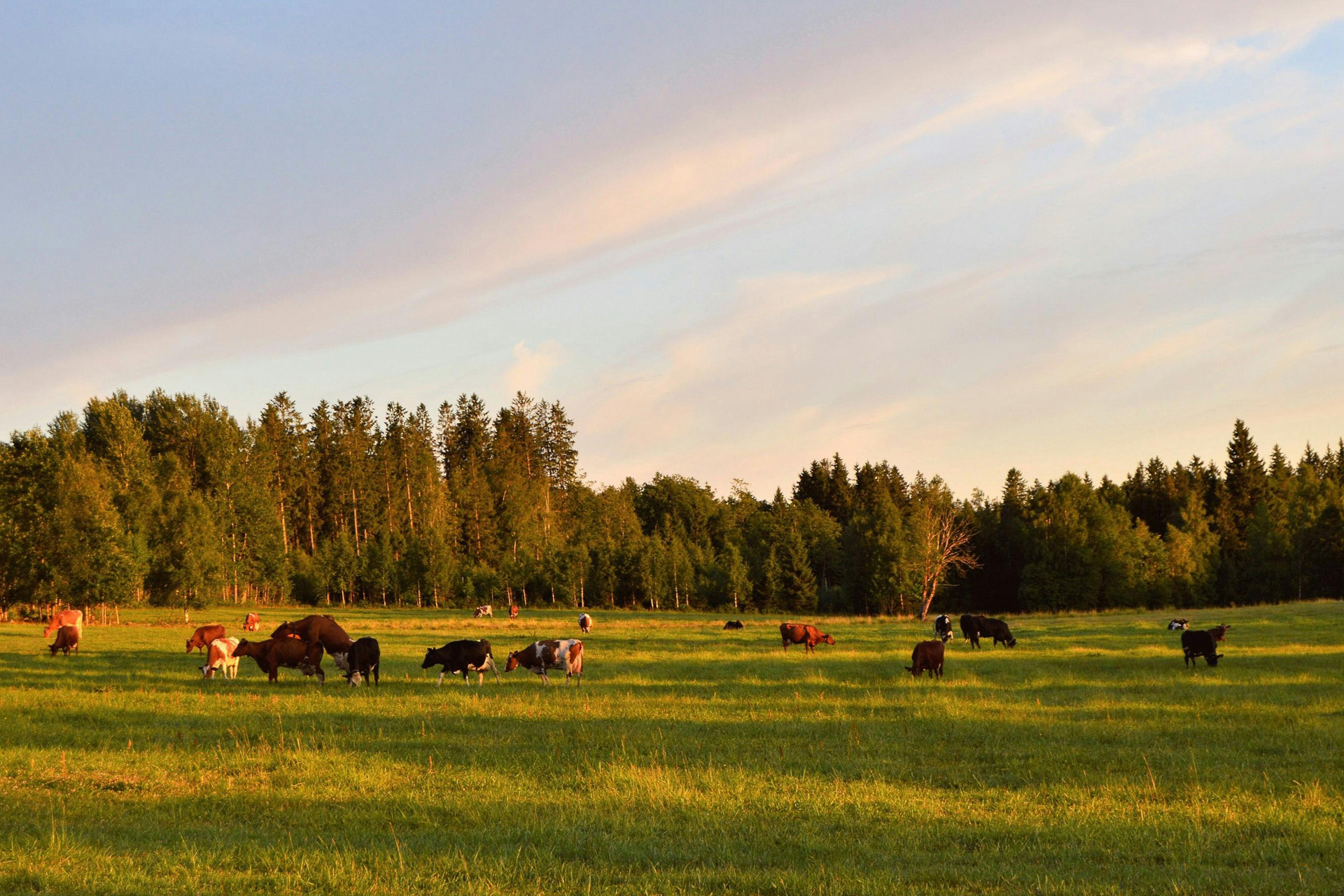
Is Organic Dairy Better For Us?
By
2 months ago
Here's why we should go organic with our milk this spring
When we think about organic food, it’s often vegetables and meat that spring to mind. Yet in its latest campaign, the Soil Association is highlighting the benefits of going organic with our dairy products during the months of March to May in particular. Not only is organic dairy better for our health and for animal welfare, it’s a more seasonal, eco-friendly option during the spring – here the experts explain why.
The Benefits Of Organic Dairy
What Is Organic Dairy?
Organic dairy products are derived from milk from livestock that has been raised according to organic farming principles, such as avoiding synthetic fertilisers and practising higher animal welfare standards.
‘Organic dairy has many important differences to non-organic,’ explains Kate Still, Head of Farming at the Soil Association. ‘This includes the rule that organic dairy cows must consume at least 60 percent of their diet as forage, any cereals that are included in the diet must also be organically produced so would be 100 percent GM free. Organic herds therefore tend to be outside for much longer than many non-organic, making organic truly free-range, giving cows the space to grow and roam on clover-rich grass.’

Unsplash
Why Is Organic Dairy Better For The Planet?
There are a number of reasons why organic farming is better for the environment. Generally, organic farms have lower carbon emissions than non-organic farms, as they use less energy, and avoid chemical fertilisers – which are usually transported from abroad. Organic farming also reduces nitrogen pollution, which can impact our seas, rivers and air.
Nurturing our soil is also a key part of organic farming, and healthy soil is crucial in the fight against climate change, as it stores carbon. Studies have shown organic soil stores are around 25 percent more effective in storing carbon than non-organic.
As Still highlights, organic dairy farming in particular supports biodiversity, ‘as cow grazing regenerates grass and helps maximise the sequestration of carbon in the soil. By not using artificial pesticides, fungicides and insecticides, organic farms have on average 30 percent more bird, insect and plant life.’
Organic milk is also particularly good to eat during the months of March to May, as there’s an excess of products around this time. That’s because organic cows go onto the grass for the first time during the spring, and as the land has been left, it’s filled with lots of goodness, helping the cows produce more milk.

Pexels
Is Organic Dairy Healthier?
Experts have long debated whether organic food is better for our health, but there is plenty of evidence pointing to the health benefits of organic milk. A 2016 study from researchers at the University of Newcastle, however, highlighted key differences between organic and non-organic milk, as a result of the diet of organic dairy cows.
‘The diet of organic dairy cows is key to nutritional differences in their milk compared to non-organic,’ explains Still. ‘Cows that have diets higher in leafy forage like grass produce milk with more long chain Omega 3 fatty acids. The majority of the UK population is low in long-chain Omega 3, and they need to either consume more in their diet or make more themselves to improve overall health.’ Plus, milk produced during the spring months will likely have even higher levels of Omega 3s, which are associated with numerous benefits, including providing energy, reducing the risk of heart disease, and potentially even slowing down biological aging.
Still adds: ‘Clover results in more Omega 3 in milk than just grass alone, and one study showed cows who were fed a forage based diet rich in clover had 20 percent more polyunsaturated fatty acids and 90 percent more Omega 3 in their milk compared with cows fed solely on cereal silage. Forage on organic farms is rich in clover because organic farmers use this plant to fix nitrogen from the air to feed the plants and help crops and grass grow instead of using artificial nitrate fertilisers. This means organic cows have diets full of this secret superfood, and they pass the goodness into their milk.’
Other studies have demonstrated similar benefits, suggesting the lack of pesticides means organic produce has more micronutrients, such as vitamin C, iron and magnesium – and some research suggests organic dairy in particular supports better skin health.






